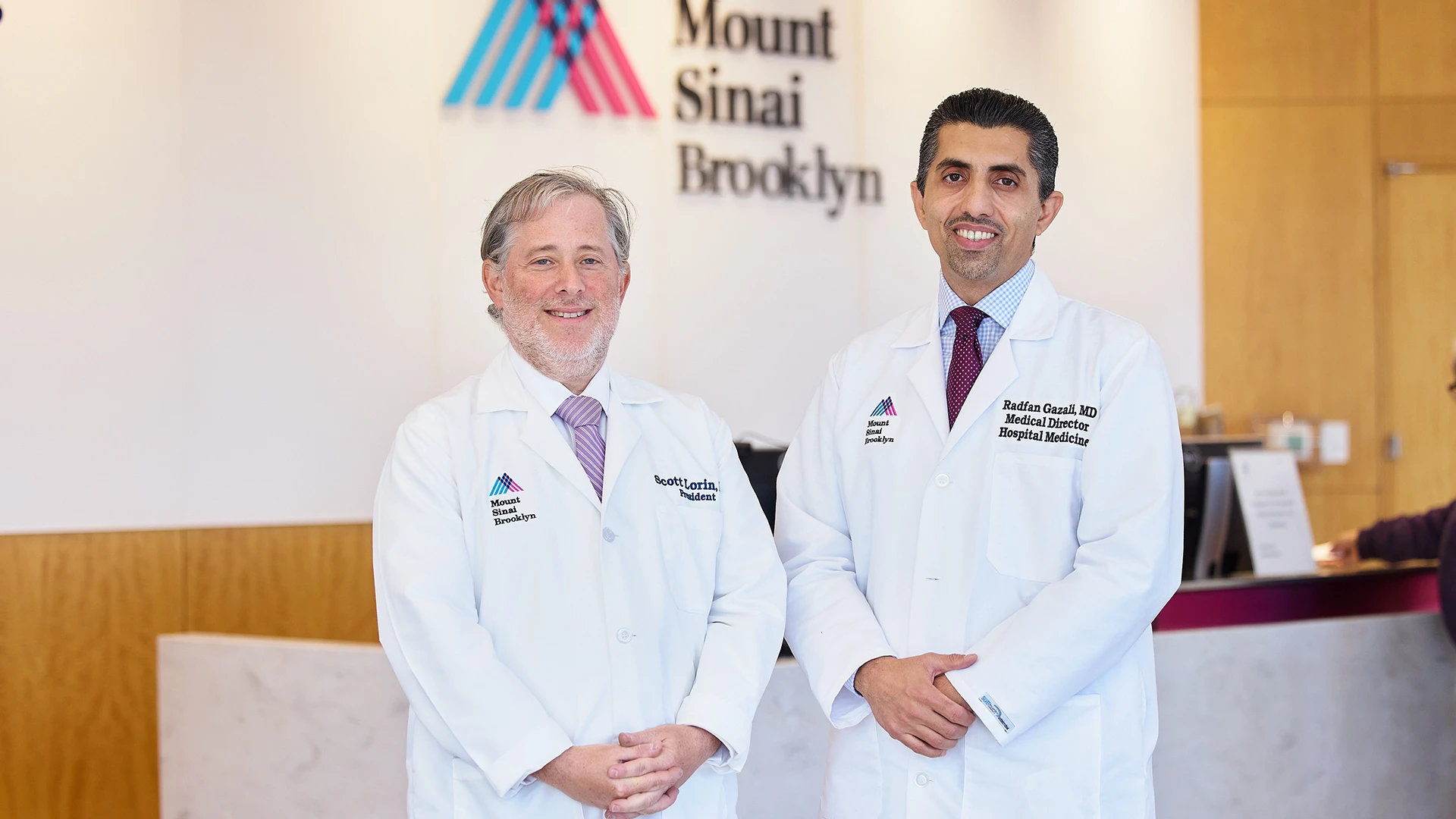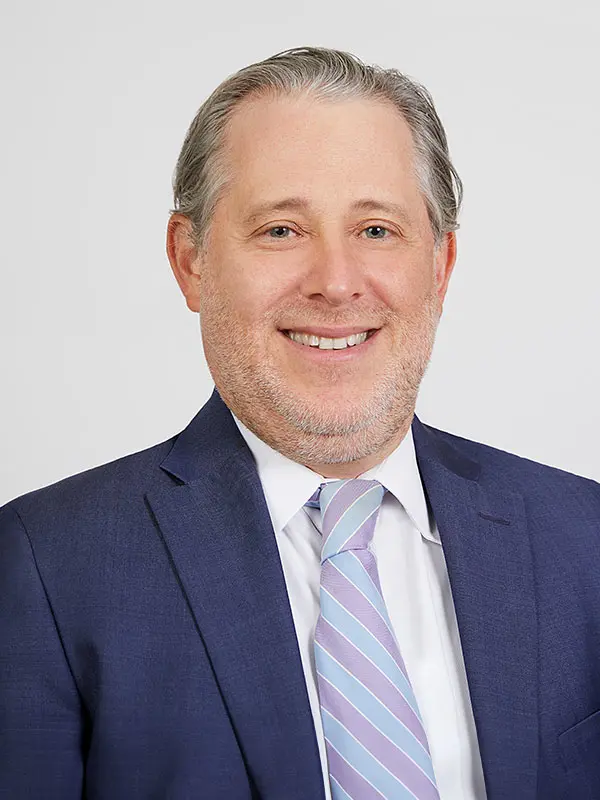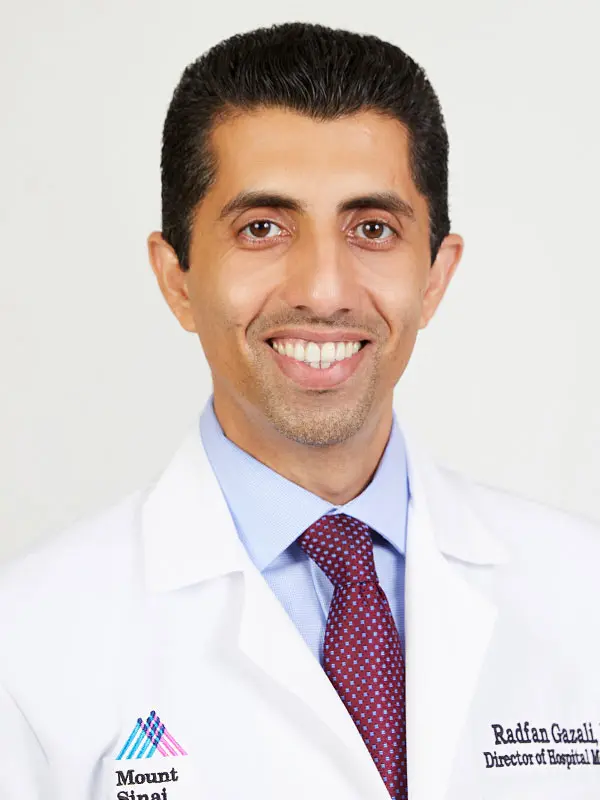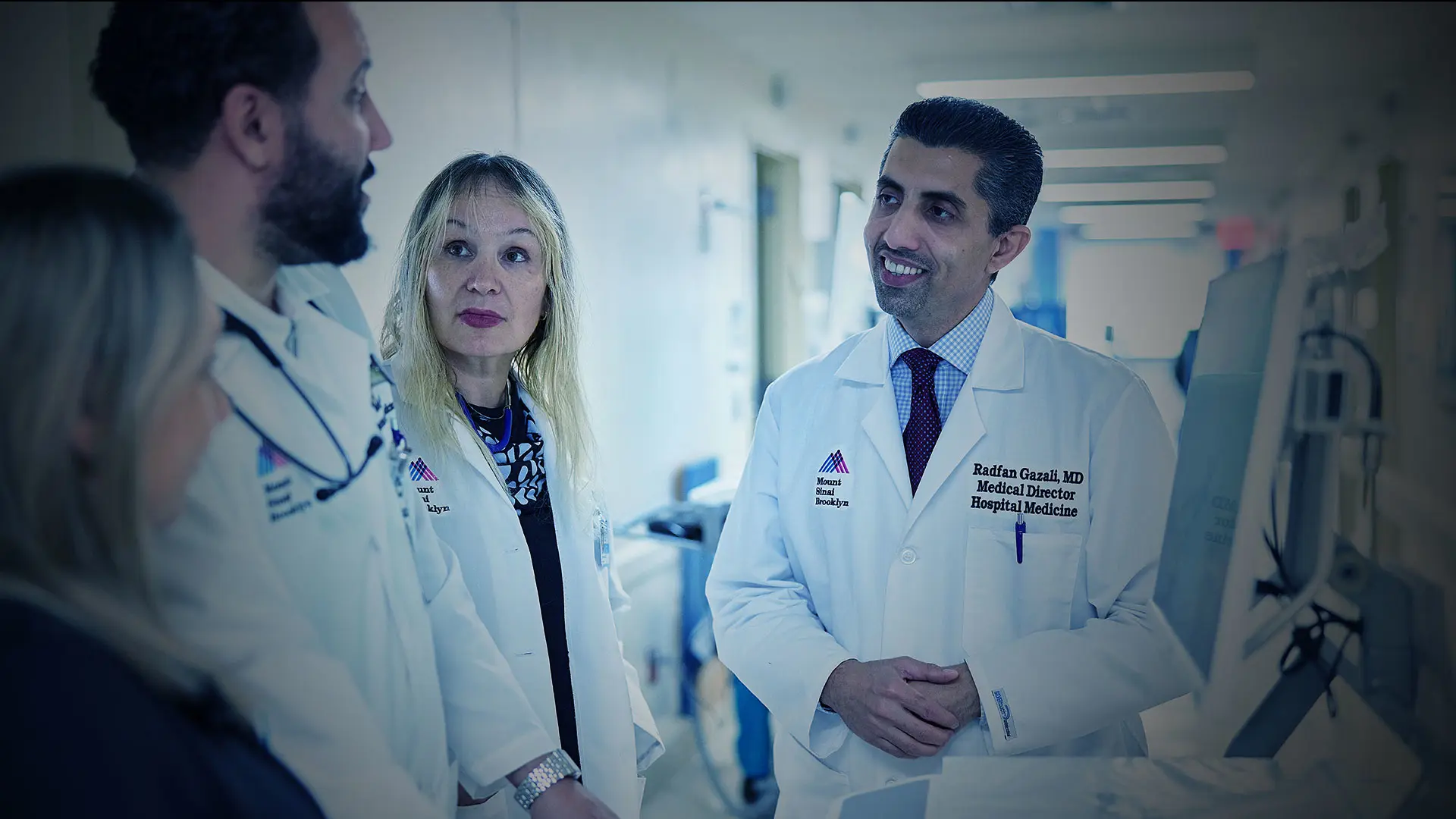For patients entering Mount Sinai Brooklyn with complex medical and surgical needs, the Mount Sinai logo adorning the 200-bed hospital in the Midwood section is a reassuring sight. That’s because this busy acute-care center, serving the ethnically and racially diverse neighborhoods of southern Brooklyn, has become a gateway for more than 1,200 patients annually who are transferred to Mount Sinai hospitals in Manhattan for specialized care and advanced procedures.
Mount Sinai Brooklyn has worked diligently over the past decade, since becoming part of the tertiary and quaternary Mount Sinai Health System, to develop and grow that linkage across an array of medical and surgical fields. At the same time, it has built an enviable reputation within the community for its own quality service in cardiology, stroke, vascular surgery, bariatric surgery, gastroenterology, and robotic surgery. Discussions are underway with the parent Health System to widen that range by bringing in specialists from Manhattan weekly to treat patients for liver, endocrine, pulmonary, and immunologic disorders.
“The greatest change we’ve made over the past decade is our ability to attract to our hospital Mount Sinai-caliber physicians to improve the quality and delivery of health care and the overall patient experience,” says Scott Lorin, MD, MBA, President and Chief Operating Officer of Mount Sinai Brooklyn, who took the helm in 2018. “That’s reflected in our quality metrics—particularly the hospital-acquired infection rate—that have improved dramatically from among the worst to the best within the Mount Sinai system, and the entire state.”
A major contributor has been a highly successful hospitalist program launched in the wake of COVID-19, when Radfan Gazali, MD, Assistant Professor of Medicine at the Icahn School of Medicine at Mount Sinai, was brought in from Mount Sinai Morningside to head up the fledgling effort as Chief of the Division of Hospital Medicine at Mount Sinai Brooklyn. Over the past two years, the program has grown to 10 full-time Mount Sinai physicians who are responsible for 30 percent of all hospital discharges. This team has also received special training in end-of-life care and now admits all inpatient hospice patients who were previously managed by an independent group. Underscoring the magnitude of this change is the fact that 65 percent of Mount Sinai Brooklyn’s patients are older than 65, and 25 percent are older than 85, an unusually high ratio for any hospital.

Scott Lorin, MD, and Radfan Gazali, MD, are among those who have led a dramatic quality improvement at Mount Sinai Brooklyn.
Further enhancing care has been the hospital’s expanded use of Mount Sinai’s telehealth programs, effectively bringing subspecialists from across the river in Manhattan to the bedside of patients in Brooklyn.
“We’ve worked closely with Mount Sinai to set up telehealth services that can connect patients and doctors from the Emergency Department or from inpatient units to medical experts in fields that range from stroke to dermatology to psychiatry,” notes Peter Shearer, MD, Chief Medical Officer and Vice President of Medical Affairs at Mount Sinai Brooklyn, and Associate Professor of Emergency Medicine at Icahn Mount Sinai. “We’re now looking to add more subspecialties, such as rheumatology and endocrinology, for medical consults.”
Accompanying the many changes have been extensive physical renovations and upgrades in recent years. The hospital now has, for example, two advanced 128-slice computed tomography scanners, and in May 2023 dedicated a new state-of-the-art magnetic resonance imaging machine. Moreover, the hospital migrated to Epic in 2019, resulting in enhanced communication and care coordination around the transfer of patients among institutions. The transition to Epic included reconfiguring most inpatient floors to make them telemetry-capable, a move that has reduced intra-hospital transfers of patients by 50 percent.
Housing much of this activity is a renovated ambulatory care building on the hospital grounds, which has become a thriving faculty practice. “We recently opened the Tisch Cancer Center with 15 infusion chairs and a brand-new mammography suite, and our oncologists are actively participating in clinical trials,” points out Dr. Lorin, who is Associate Professor of Medicine (Pulmonary, Critical Care and Sleep Medicine) at Icahn Mount Sinai. “We also have a robust orthopedic practice, neurology, and stroke services in this building, and recently moved all outpatient surgical services to a renovated suite on the top floor with 12 exam and two minor procedure rooms.”
As a fast-growing member of the Mount Sinai family, the Brooklyn hospital has also realized significant gains in physician recruiting, which in years past was a challenge. The solution lay in enticing graduates from Mount Sinai’s medical training programs to work at the Midwood site. “We put a lot of effort into recruiting these graduates, who sometimes split their time with the Manhattan hospitals,” acknowledges Dr. Lorin. “And their experience was so positive that they began telling colleagues, who were encouraged to come to Brooklyn. And that’s how we built our faculty practice, and how we continue to build a Mount Sinai level of quality care.”
Featured

Scott Lorin, MD, MBA
President and Chief Operating Officer, Mount Sinai Brooklyn

Radfan Gazali, MD
Assistant Professor of Medicine (Hospital Medicine); Chief of the Division of Hospital Medicine, Mount Sinai Brooklyn
